Toyota, Honda And Nissan Join Forces In Japan For Solid-State Batteries
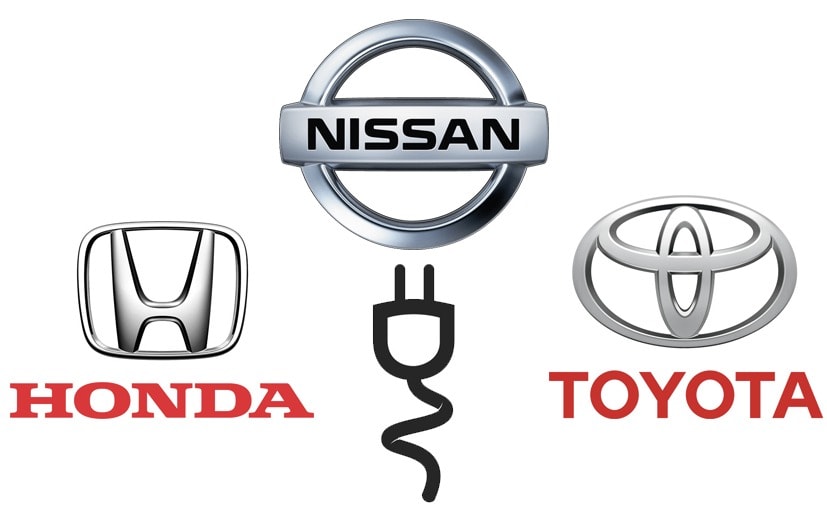
Until a few years ago, Japanese battery makers dominated the world's market when it came to both manufacturing and technology in the electric mobility battery space and especially when it came to Lithium Ion batteries. Over the years though, with Chinese manufacturing coming into the foray, Japan lost significant market share. Now, to gain back market share, especially when it comes to future technologies, a Japanese government program, LIBTEC - Lithium Ion Battery Technology and Evaluation Center has been formed to accelerate development of solid state batteries. Japanese automakers, Honda, Toyota and Nissan have all come together as a part of this program in order to benefit from it for their electric and hybrid mobility projects.
The program has also received a 1.6 billion yen (Rs. 94 Crore) from the Japanese government as funding to accelerate research. Also a part of the program are global battery manufacturing giants, Panasonic and GS Yuasa along with automotive component manufacturers Asahi Kasei and Toray Industries.
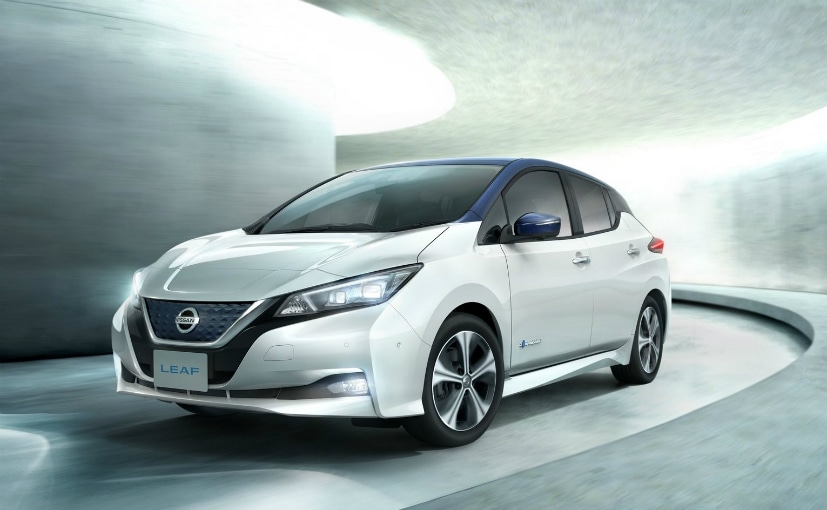
(Solid-state batteries as compared to Li-ion ones are lighter and store twice as much power)
As compared to Lithium Ion batteries, which essentially use a liquid electrolytic solution to regulate the flow of current, solid-state batteries opt for a solid electrolyte in the form of a electricity conductive chemical mixture that allows the flow of current between cells (or technically between the anode and the cathode). That said, they are comparatively much lighter and have roughly about double the power as compared to a lithium ion battery. For example, while a Li Ion battery can give up to about 400 kms of range on an electric car today, the same number and size of solid state batteries would offer close to 800 kms of range. And to add, solid state batteries are also much quicker to charge from empty to full as compared to their lithium ion counterparts, which could do away with the biggest problem that electric cars face today - range anxiety.
Latest News
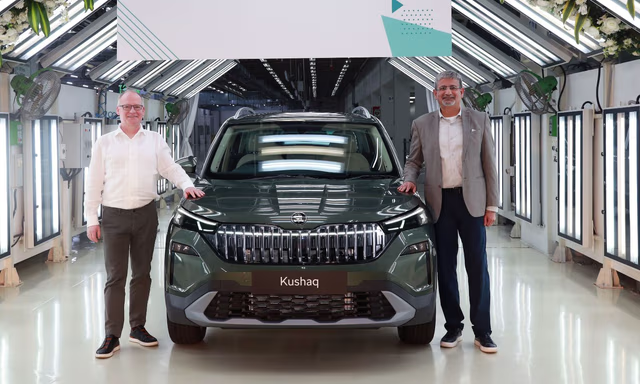 Jaiveer Mehra | Feb 23, 2026Skoda Kushaq Facelift Production Commences Ahead Of LaunchThe facelifted Kushaq made its global debut last month with deliveries set to commence from March 2026.1 min read
Jaiveer Mehra | Feb 23, 2026Skoda Kushaq Facelift Production Commences Ahead Of LaunchThe facelifted Kushaq made its global debut last month with deliveries set to commence from March 2026.1 min read Jaiveer Mehra | Feb 23, 20262026 Isuzu D-Max Hi-Lander Launched At Rs 21.05 Lakh; Gets Automatic Gearbox Option, More FeaturesThe Hi-Lander continues to only be offered in 4x2 spec, but now packs in similar features as the base-spec V-Cross.1 min read
Jaiveer Mehra | Feb 23, 20262026 Isuzu D-Max Hi-Lander Launched At Rs 21.05 Lakh; Gets Automatic Gearbox Option, More FeaturesThe Hi-Lander continues to only be offered in 4x2 spec, but now packs in similar features as the base-spec V-Cross.1 min read car&bike Team | Feb 23, 2026KTM Ends Long-Term Partnership With KISKA DesignWith Bajaj Auto now the owner of KTM, the Austrian brand is shifting to in-house design but will still work with KISKA on some projects.1 min read
car&bike Team | Feb 23, 2026KTM Ends Long-Term Partnership With KISKA DesignWith Bajaj Auto now the owner of KTM, the Austrian brand is shifting to in-house design but will still work with KISKA on some projects.1 min read Jaiveer Mehra | Feb 22, 20262026 Isuzu D-Max V-Cross Gets New Features, Cosmetic Updates; Prices Start From Rs 25.50 LakhUpdates include the addition of a new 10.3-inch touchscreen & 360 degree cameras, among others; no 4x2 option.1 min read
Jaiveer Mehra | Feb 22, 20262026 Isuzu D-Max V-Cross Gets New Features, Cosmetic Updates; Prices Start From Rs 25.50 LakhUpdates include the addition of a new 10.3-inch touchscreen & 360 degree cameras, among others; no 4x2 option.1 min read car&bike Team | Feb 21, 2026Norton Atlas Spotted Testing In India Once AgainThe spied model appears to be the base version of the mid-capacity adventure tourer.1 min read
car&bike Team | Feb 21, 2026Norton Atlas Spotted Testing In India Once AgainThe spied model appears to be the base version of the mid-capacity adventure tourer.1 min read car&bike Team | Feb 21, 20262026 Tata Punch EV Facelift: Variants, Features, Prices ExplainedThe Punch EV facelift is offered in six variants and with two battery pack options. Here is a rundown of what each variant has to offer.1 min read
car&bike Team | Feb 21, 20262026 Tata Punch EV Facelift: Variants, Features, Prices ExplainedThe Punch EV facelift is offered in six variants and with two battery pack options. Here is a rundown of what each variant has to offer.1 min read
 Girish Karkera | Feb 20, 2026Road Test: 2025 VinFast VF7 AWD Sky InfinityFlagship all-electric SUV from the Vietnamese car maker gets most of the basics right.1 min read
Girish Karkera | Feb 20, 2026Road Test: 2025 VinFast VF7 AWD Sky InfinityFlagship all-electric SUV from the Vietnamese car maker gets most of the basics right.1 min read Jaiveer Mehra | Feb 18, 2026New BMW X3 30 Vs Mercedes-Benz GLC 300: Midsize Luxury SUV FaceoffWith the new X3 30, BMW has a direct competitor to the petrol GLC 300, but which is the luxury SUV for you?1 min read
Jaiveer Mehra | Feb 18, 2026New BMW X3 30 Vs Mercedes-Benz GLC 300: Midsize Luxury SUV FaceoffWith the new X3 30, BMW has a direct competitor to the petrol GLC 300, but which is the luxury SUV for you?1 min read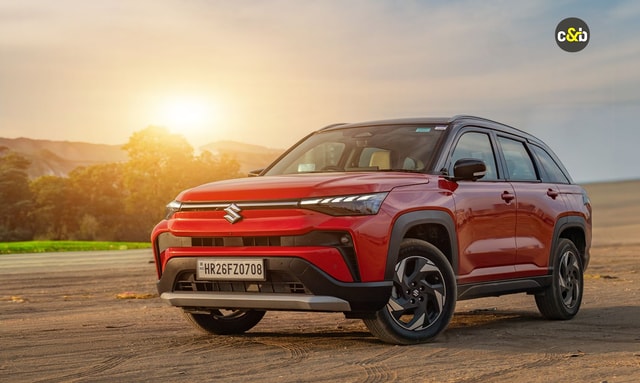 Jafar Rizvi | Feb 15, 2026Maruti Suzuki Victoris: Long-Term Review - Report 1The Victoris is Maruti’s latest offering for the Indian market, and after spending some time with it, here are a few early impressions.1 min read
Jafar Rizvi | Feb 15, 2026Maruti Suzuki Victoris: Long-Term Review - Report 1The Victoris is Maruti’s latest offering for the Indian market, and after spending some time with it, here are a few early impressions.1 min read Bilal Firfiray | Feb 12, 2026BMW X3 30 xDrive M Sport Review: The Driver’s SUV ReturnsRange-toppingX3 30 xDrive M Sport brings back the fun with 255bhp and genuine enthusiast appeal. Does this performance-focused SUV stand out?5 mins read
Bilal Firfiray | Feb 12, 2026BMW X3 30 xDrive M Sport Review: The Driver’s SUV ReturnsRange-toppingX3 30 xDrive M Sport brings back the fun with 255bhp and genuine enthusiast appeal. Does this performance-focused SUV stand out?5 mins read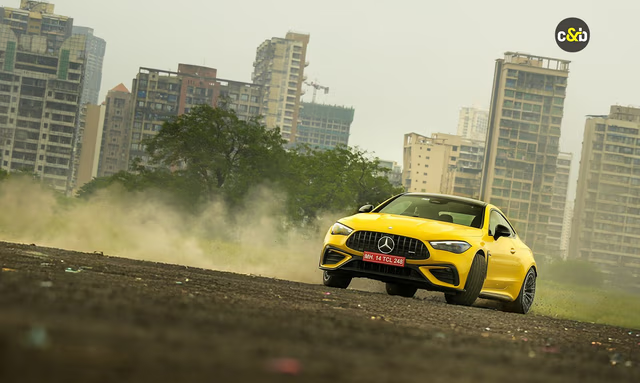 Bilal Firfiray | Feb 11, 2026Mercedes-AMG CLE 53 Coupe Review: The Goldilocks AMG?The Mercedes-AMG CLE 53 Coupe is a concoction of hooliganistic performance and everyday usability. Here’s why this Rs 1.5 crore two-door AMG might be the perfect modern sports coupe for India.6 mins read
Bilal Firfiray | Feb 11, 2026Mercedes-AMG CLE 53 Coupe Review: The Goldilocks AMG?The Mercedes-AMG CLE 53 Coupe is a concoction of hooliganistic performance and everyday usability. Here’s why this Rs 1.5 crore two-door AMG might be the perfect modern sports coupe for India.6 mins read



















































































































